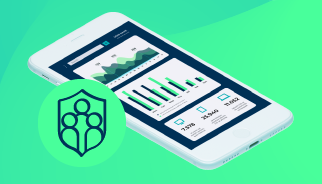Maintenance & Operations
Thought Leadership
CMMS and Cybersecurity: Strengthening Your Defense in Industry
The Case for Security Would you be comfortable knowing that complete strangers were wandering around your yard and inside your house? Most of us would say, “No way!”, even if we trust that most people don’t have malicious intent. We...
NEW
blog
You Get What You Pay For: Evaluating CMMS Beyond Cost
5 minutes In today’s dynamic business landscape, organizations rely on Computerized Maintenance Management Systems (CMMS) to streamline maintenance process’...
NEW
blog
Sparking Inspiration: Key Education Takeaways from Illuminate 2024
4 minutes I recently attended my first Illuminate Conference in Raleigh, NC with Brightly Software staff and clients. It was an amazing event that offered...
NEW
blog
Demystifying Work Planner Web App
4 minutes Work Planner™ is Brightly’s newest Strategic Asset Management (SAM) tool, designed to simplify multi-year capital planning and provide greater...
NEW
blog
Employee Spotlight: Rebecca Harris, Senior Product Consultant
1 minute Role and Tenure: Rebecca is a senior consultant working with the Confirm TM Asset Management Suite. She has over 11 years of experience working with...
NEW
blog
Q&A with 2024 Client Excellence Award Winner Anabel Schneller
3 minutes This year’s Illuminate 2024 conference was an amazing week filled with education, innovation, and opportunities to highlight some of the incredible...
blog
CMMS + AIP: A Profitable Pairing for Enterprise Asset Management
2 minutes Today, we’re exploring how combining computerized maintenance management software (CMMS) with an asset investment planning (AIP) strategy can help...

How to protect your operations budget during inflation
In times of inflation, smart technology can help maximize budgets (including help with grant or funding requests) through more effective utility management, smart asset management, and reduced long-term or emergency costs from preventive maintenance.
blog
Understanding Mean Time Between Failures (MTBF) in the Context of CMMS Software and Enterprise Asset Management
5 minutes The concept of Mean Time Between Failures (MTBF) is a critical metric in the realms of maintenance, reliability engineering, and asset management. It...
blog
The Best Sessions (For Your Industry) to Attend at Illuminate 2024
4 minutes Our most recent highlight, “ The Top 10 Sessions at Illuminate 2024,” dove into what we think are the most pertinent sessions during this year’s event...
blog
What is a CMMS: Computerized Maintenance Management System
10 minutes What is a CMMS? A CMMS, or computerized maintenance management system, is software that makes scheduling and tracking maintenance work orders faster...
blog
Maximize Funding: How Asset Management Software Can Help Navigate the U.S. Department of Education’s Grant Programs for Spring 2024
4 minutes Exciting news broke in January, as the U.S. Treasury Department announced grants exceeding $32 million for state education departments in Alabama...
blog
Understanding integration concepts
8 minutes Have you ever sat in a meeting where the topic of software integration has come up? If you’re not from a technical background, chances are you...
blog
Marcy Playground Appreciates Fans, Raleigh Triangle Ahead of Illuminate 2024
3 minutes When Marcy Playground takes the stage to play at Illuminate 2024, it’ll be a homecoming of sorts for the band. We caught up with the band’s bassist...
Want to stay up to date on resources? Sign up for our Resource Round-up!
Our goal is to provide you with resources to address and assist your ever-evolving needs. We offer a suite of complete of award-winning solutions to help you optimize today, plan for tomorrow and help the world to thrive.








